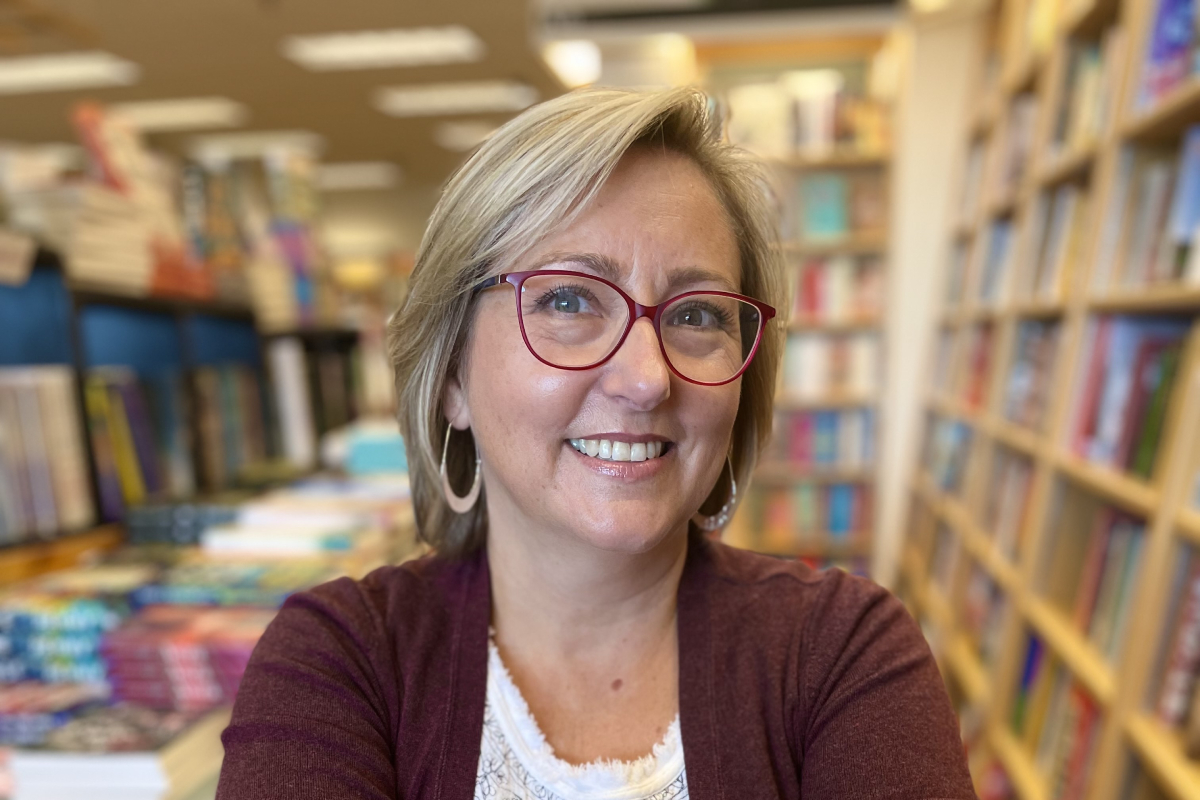Photo courtesy of Susan Chamberlain.
A local bookstore is a communal space. Susan Chamberlain runs The Book Keeper in Sarnia, Ontario, and has deep roots with the history of the independent bookstore. The Edge spoke with Chamberlain to learn about her fateful ownership of The Book Keeper and how this independent business has dealt with challenges brought on by a pandemic.
What inspired you to take the entrepreneurial road with The Book Keeper? What personal challenges have you had to overcome to set up and then grow your business?
I worked at The Book Keeper when I was in high school. The bookstore has been a part of me for a long time. The former owner, Kathy Mitchell, was a mentor to me — almost like a second mother. My owning The Book Keeper came to be a joke between myself and Kathy — never realizing that this would materialize. I lived outside of Sarnia for about 10 years prior to becoming the new owner. When I moved back to Sarnia, I had a husband and my first child. I continued to work at The Book Keeper every other Saturday. At this point, Kathy and I began discussing if I would really take over the business. However, I became pregnant with my next child. At this point, the bookstore was in danger of closing. Since there was never going to be a perfect time, I decided to take over The Book Keeper. Time management was challenging while having a family and running the bookstore. However, it was nice for my children to grow up around a bookstore.
Since you took ownership of The Book Keeper in 2001, what significant changes have you seen in the industry and the market of readers, and what adjustments have you had to make?
When I first took over, the industry was just books. Audio books were on cassette but were slowly merging [into] CDs. Over time, e-books and online buying were big scary monsters for book sellers. The worry was having to compete with these new venues. I decided not to worry about these new forms of purchasing books. You get less scared of things as time goes on. We have always had faithful customers. For example, at the beginning of the pandemic, things were uncertain [as to] what would happen to the business. Thankfully, our customers continued to purchase from us, and the online platforms kept us in business.
Delivery service was more frequent during the pandemic. In terms of technological changes, we began with one computer; now we have six and two store laptops. There’s a cell phone for the store too. In the early days, inventory was handwritten; now the store is computerized. There’s been many technological changes but books themselves have not changed in hundreds of years. Lastly, a lot of business happens over social media. This takes a lot of time, but it’s worth it.
What measures do you take to be involved with local communities?
There are many ways we engage [with] the community. For example, if an agency has invited an author to speak, The Book Keeper is often asked to set up an area to sell their books, which we love to do. We support book fairs and schools. We donate books to a variety of organizations such as hospitals, drop-in centers, and charities. The bookstore promotes local authors. I am constantly approached to help introduce new authors. I always try to accommodate these kinds of requests.
From a marketing and sales perspective, what methods do you rely on for promoting your business and building loyalty with your customer base?
In the store, we have a rewards program. The more you shop, the more points a customer receives, and the points turn into money towards items in the store. The Book Keeper has online shopping accompanied by a delivery service, if customers require it. We are highly active on social media, especially Facebook, Instagram, and TikTok. We are on Twitter, though we don’t use it as much as the previously mentioned social media outlets. For many years, I have advertised the bookshop in newspapers and on radio.
Our own website is part of our marketing tools. There’s a Canadian independent bookstore day — sometimes, we have a book sale. Other times, we have draws that entail discounts for customers. We also do free giveaways. Summer promotions and marketing is our donation to diverse groups. This builds a sense of loyalty. It allows people to know that The Book Keeper is their bookstore. It’s important to me that people feel that we are Sarnia’s bookstore. Our last big author, before the pandemic hit, was Margaret Atwood. There were seven hundred people that attended this event. It’s nice to see my customers gathered on these occasions. I often run into customers outside of store hours in Sarnia. I feel an ownership when I see my customers.
How have you handled the difficulties that emerged from the pandemic’s lockdowns, and what were the positive outcomes for The Book Keeper?
We tried to move forward with business. The store was shut down. As mentioned, this is when delivery service really got busy. We pivoted to phone calls, text messages, and online orders. We sent pictures of new merchandise around to customer’s cell phones. Post-pandemic, we only had our books on our website. Now, we have more of our giftware presented on the website. One of the positive aspects that came out of the lockdowns was people wanting to purchase books. People had more time. It was important for our customers to know that we were willing to accommodate them. Curbside pick-up and delivery service was our staple during the lockdowns. An interesting fact: jigsaw puzzles sold like crazy. We could not keep them in store for long during the lockdowns. What also helped was people shopping local to keep their city intact. The Book Keeper thrived during these pandemic times.
Jason Waddle | Contributing Writer



















